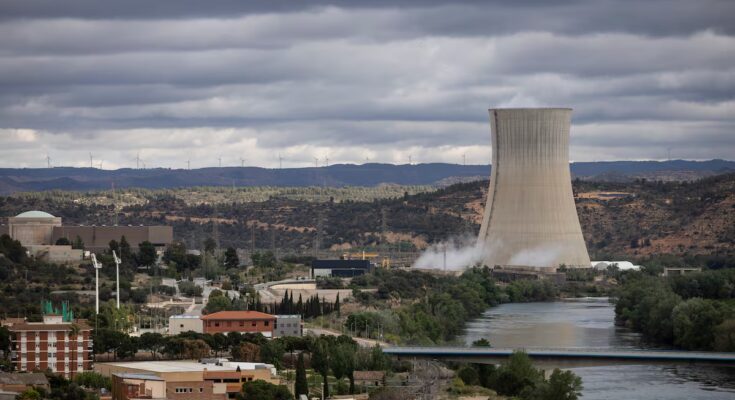Catalan nuclear power plants are preparing to follow in the wake of the Almaraz reactor in Extremadura and be able to extend their operational life to at least 50 years of activity. The three nuclear plants that operate in Ascó and Vandellòs, and which produce 50% of the electricity required annually in Catalonia and 9% of that consumed throughout Spain, are scheduled for disconnection between October 2030 (Ascó I), September 2032 (Ascó II) and February 2035 (Vandellòs II), but Anav, the company that manages the three complexes, defends that “the groups are prepared to be able operate for many more years”, regardless of the fact that the theoretical limit of their useful life was, in principle, 40 years of operation. Paulo Santos, director general of Anav, said on Tuesday that the safety conditions of the plants and the preparation of personnel to extend the life of the reactors are satisfied. “We’re waiting,” he admits.
The Anav company is owned by Endesa and Iberdrola and has not yet officially asked the Government to extend the permits for Ascó and Vandellòs. A procedure that Almaraz has completed and which, according to Paulo Santos, “is good news for the sector”. The head of the Catalan nuclear complexes, as well as president of the Spanish Nuclear Society (SNE), defends that they are technically prepared in case the time comes to request extra life and stresses that there are no reasons for the closure. Regarding the doubts about the safety that a nuclear plant can raise after half a century of operation, Anav foresees an annual investment of 90 million euros (30 million per reactor) to maintain the plants without losses or failures.
“Our three factories have passed periodic safety audits and are in perfect technical condition. We continue to invest around 30 million euros per year in each group to continue improving”, said the general director of Anav, during a meeting this Tuesday with the media. Ascó I began its activity on 10 December 1984, while Ascó II on 31 March 1986. How long could they have operated? “Exploitation permits are usually required for 10 years. At the moment it would be up to 50 years,” explains Santos.
The third vice-president and minister of the ecological transition, Sara Aagesen, confirmed that, for now, the only nuclear power plant that has asked for an extension of its activity is that of Almaraz (Cáceres). Aagesen, who spoke to the Efe agency in the Brazilian city of Belém on the sidelines of the COP30 climate summit, recalled that the owners of the nuclear power plants agreed on the closure schedule in 2019 and it is up to them to decide whether or not they want to consider an expansion.
“The only expansion we have received a request for is Almaraz and so we are in that process, where before we were very clear that we would not allow the cost of any expansion to affect consumers or citizens, and now we are at that stage where we want to see if there is nuclear safety,” he commented.
The plenary session of the Congress of Deputies rejected last week, due to the abstention of Junts, the amendment that the PP incorporated in the Senate to the bill on sustainable mobility to cancel the “definitive cessation date” of the nuclear power plants of Almaraz, Ascó I and Cofrentes (Valencia).



